Meet First Lieutenant Ginny
Virginia "Ginny" Deardorff Dornheggen - Army Nurse tells her Vietnam story.
Ginny woke up under her bed again. And as always, she does not remember how she got there. She is back in Qui Nhon, South Vietnam, at the 67 Evac Hospital in 1970.
She was working her 1900-0700 shift, finally accepting that she was in Vietnam as an Army nurse and things were getting routine. Maybe this will be a short night, not the usual 12 hours on and 6 hours of sleep. She decided she could make it the next few months until her 365 days were over, and she could go back to the world. “Maybe I can do this…”
Things were quiet that night. Until it was not. Her men were sleeping in their hospital beds when she heard an ungodly sound that shattered the calm. The enemy hit with 5000 pounds of mortar on an ammunition dump near the hospital.
Ginny knew that there were no front lines in Vietnam. Everywhere was the battlefield. But she had not experienced this terrifying reality of war until that January night. This would be the catalyst for her nightmares for 40 years.
Still, in her dream state, Ginny hit the floor of her bedroom and slid under the bed. She was back on duty in Vietnam on January 6, 1970.
On that horrific night in the 67th Evac hospital, she crawled under a metal desk with a flak jacket and helmet. Then she remembered what her duty was, why she was there. So she crawled out to help the other two nurses on duty that night.
She tried to wear her flak jacket, but it impeded her work. She slipped it off and began working with her partners to get the men, the wounded soldiers, to safety. The women placed the wounded on cots and slide them under their bed frames, using the mattresses as a shield from the flying glass and metal.
They worked quickly to get the men all covered. The last one to receive their help was the prisoner of war, a Vietcong, in a full body cast. There were no more mattresses or cots, so the nurses put him under his bed and figured the body cast would protect him. They were not that concerned. The enemy was not the priority. And the bombing continued all through the night.
She secured all her patients and completed her duty. That night remained captive in her mind for decades after her service in Vietnam.
Ginny relived these night terrors for years. She did not want to talk about it. She lived in silence with her nightmares from 1970 until 1993, when she finally talked. The Woman’s Vietnam Memorial began her healing, and she finally shared her story.
Ginny did not want to admit she had Post Traumatic Stress Disorder (PTSD); she was a functioning civilian wife, mother, and nurse. She appeared fine except for a few odd experiences. When she first started dating her husband of many years, they went on a walk around town. A car backfired. Her husband kept walking and did not notice she had hit the sidewalk. Everyone looked at her. She got up and brushed herself off, and pretended everything was fine.
Alone in her house, long before Ginny explained to her husband what had happened to her at war, she gave him his own terror. Ginny did not expect him home, but he came home unexpectedly and was standing there. He scared her, and she began hitting him. She ordered him never to come into the house like that again.
Her trauma was with her and kept popping up. She had all the symptoms of Post Traumatic Stress Disorder or PTSD. Ginny knew others had worse experiences and would brush incidents aside. She refused to talk about it.
Other incidents included a fly-over at a football game. The gunshot (the start gun) made her leave her son’s swimming meet, and she apologized to the other mothers without explaining. Even today, when helicopters fly overhead at the golf course in Georgia, she must take a moment to regain her composure before her shot.
The unexpected noises and shifts of movement are unsettling to Ginny. As she ages, she admits she has had PTSD all along but has dealt with it. She is an intelligent and competent woman, but no one can escape the trauma of living in a war zone. Those images stream still stream in her mind.
She never allowed the soldiers to get close to her. This calms her. She kept them at a safe distance so she could do her job, putting one boot in front of the other, day by day. This distance reminded me of Colleen McMurphy in the war drama “China Beach.” Played by Dana Delany, this tough Army nurse would not allow herself to get too close to the men.
Ginny admitted to watching the show and stated the only issue was that one nurse did all the work. In the Army, it was solid teamwork. She said, “Never in my 43 years in nursing did I ever share the camaraderie that we did in the service.” Commenting on the errors in the show, she said nurses did not work all over the hospital; they only worked in one unit at a time. Though tough, Ginny says her Army experience was one of the best things she ever did.
Another healing moment came when she started conversations with high school students about being a nurse. She began working with vet groups and encouraging others to take part and talk about their experience. She commented on how the vets from Afghanistan talk little and wondered what they might have to say.
For years, her husband did not know she had the Bronze Star. She did not think she should have it. Since 1941, the military gives the Bronze Star Medal for heroic or meritorious service. It bothers Ginny that all nurses did not get the Bronze Star. Eventually, she accepted the medal and began wearing it for her work in country. She remains unassuming. She does not think she deserves any recognition. Yet the dreams and memories of being overrun remain. She feels her story must be told for those still suffering their own hell of PTSD.
When she returned home, she understood why the protesters were fighting this war at home. She said she does not like the disrespect of flag burning. We need to understand that there is a difference between the government and our country. We may not like what the government does, but we need to love our country.
Coming home came in stages. On November 10-12, 1993, she was at the dedication Vietnam Women’s Memorial dedication. People were applauding and telling her thank you.

On another visit to Washington with a fellow Army nurse, they were looking at the wall. A Gold Star wife asked if she was looking for a name. Ginny said, “To be honest with you, I don’t remember any names. I know I took care of a lot of these guys.”
Then another asked, “Have you gotten your commemorative pin?” Ginny was confused. They gave a 50-year commemorative pin to Vietnam vets, but Ginny said, We’ve only been back 45 years.” They said it was 50 years since the beginning of the war, and the pin was for all Vietnam veterans. People surrounded her as they presented the pins to her friend and herself. People clapped and cheered, “We began to cry.” She said this was another part of the healing process.
Asked if she tires of being thanked for her service and telling her, “Welcome Home” after decades of being in the States. She said, “No, I don’t get tired of it because for 20 years, I never heard it.” It surprised Ginny when veterans at the Women’s Memorial thanked the nurses.
Her mind returned to one day in Vietnam when Miss America 1971, Phyllis George, and her court visited the soldiers. She made up with beautiful hair and elegant clothes. Ginny was in her dirty Army fatigues and combat boots. Ginny held a soldier up who had no arms so he could talk to George. After she moved on, Ginny told the soldier that wouldn’t it be nice if all the nurses could look that good? With tears, Ginny recounts the soldier telling her, “They don’t hold a candle to what you mean to us and to what you are.”
It hit her, standing at the Women’s Memorial. “Oh my gosh, we actually did something. Then she walked to the Vietnam Veterans Memorial wall and “felt like we did nothing.” But a friend on the trip told her, “If you nurses weren’t there, this wall would be six miles longer.” Ginny reflects, “I love the fact that the Women’s Memorial overlooks the Wall.”
Her story must be told to others suffering from PTSD. She may not want to write a book, but her story will be told. Every generation needs to remember and reflect - long past Memorial Day.
Welcome home, Ginny, First Lieutenant Dornheggen, and thank you for your service. What an honor to have met you and talked with you.
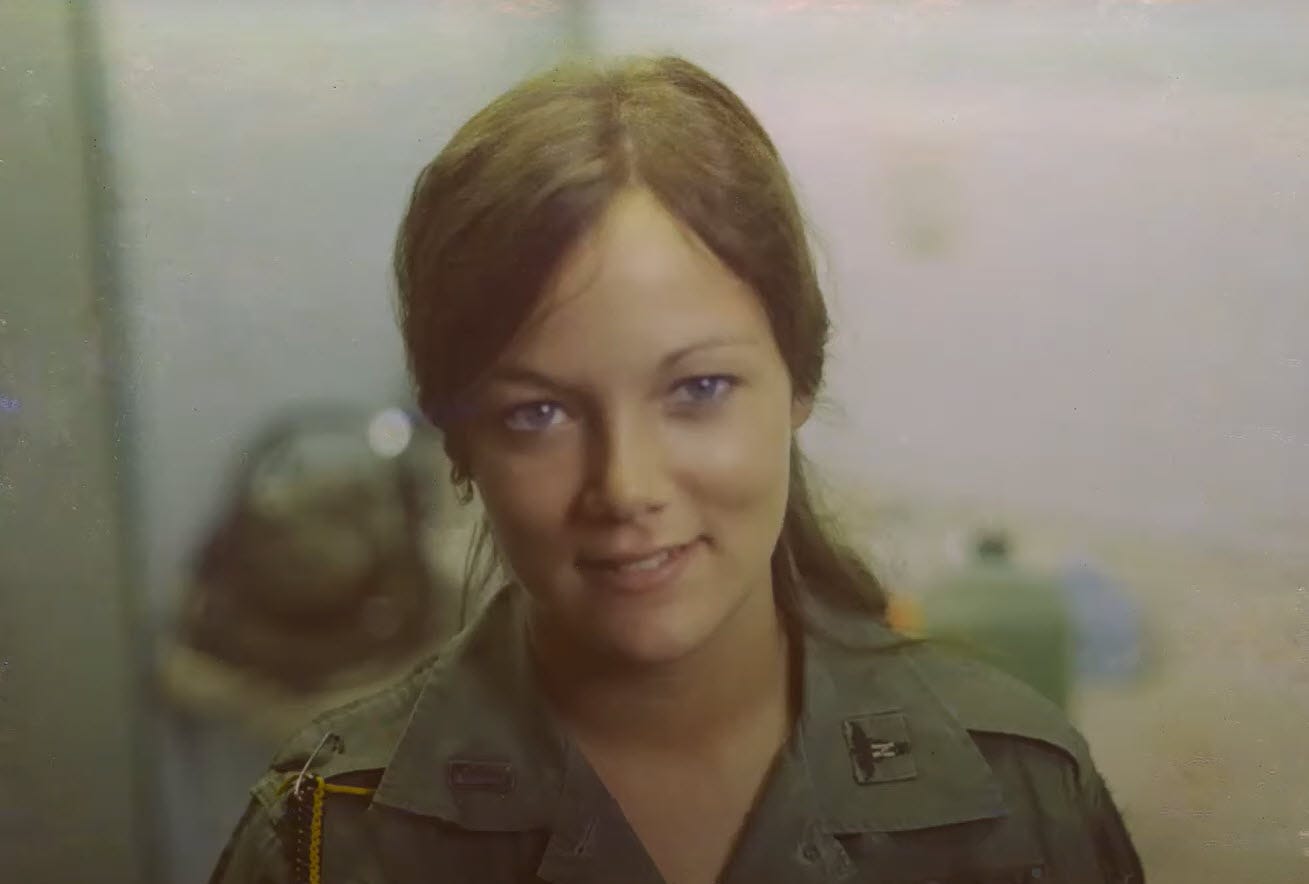
Sources:
Oral History with the Author, 2021.
Atlanta History Center Oral History
More on Vietnam War Army Nurses:
On “The Wall” is Army nurse, Lt Sharon Lane
First Lieutenant Sharon Ann Lane - The only woman killed in Vietnam by enemy fire. June 8, 1969
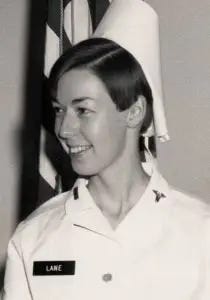

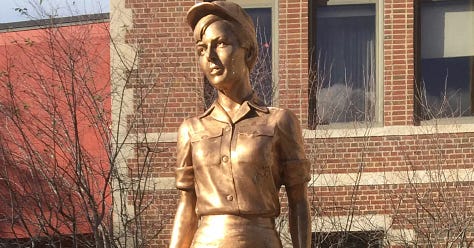
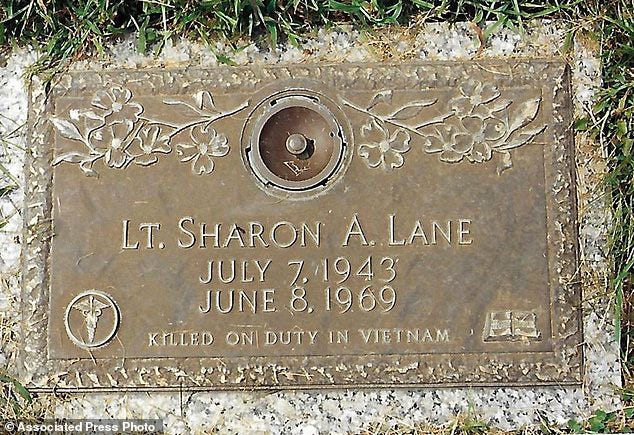
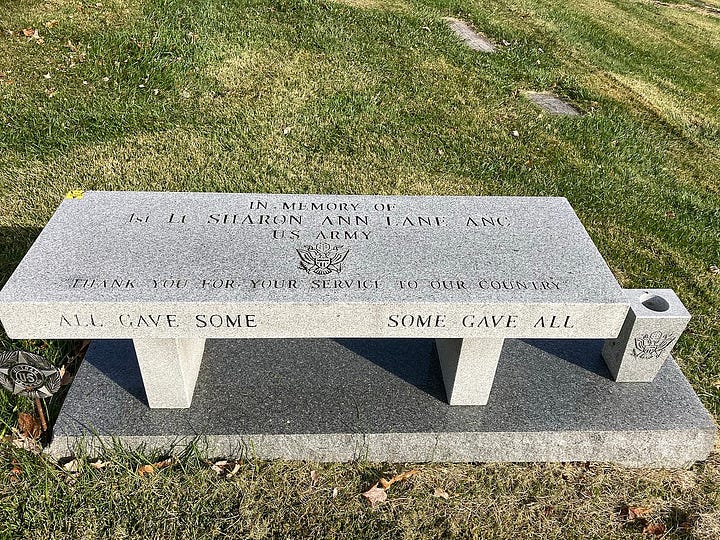
One month shy of her 26th birthday, First Lieutenant Sharon Lane was killed by enemy fire on June 8, 1969. She was posthumously awarded the Purple Heart, the Bronze Star with “V” device, the National Defense Service Medal, the National Order of Vietnam Medal, and the Vietnamese Gallantry Cross (with Palm).
She is still remembered for her service by these honors:
On 11 November 1969, the Fitzsimons Hospital named its recovery room the Lane Recovery Suite and put a plaque and a picture on display.
Also in 1969, the Daughters of the American Revolution named her Outstanding Nurse of the Year and posthumously awarded her the Anita Newcomb McGee medal in 1970.
In 1973 a statue of Lane was dedicated in front of Aultman Hospital
In 1986, that same Hospital opened the Sharon Lane Woman’s Center in its front lobby.
The Canton Chapter of the Vietnam Veterans of America officially changed its name to the Sharon Lane Chapter #199
Roads in Denver, Colorado, and at Fort Belvoir, Virginia, have been named in her honor.


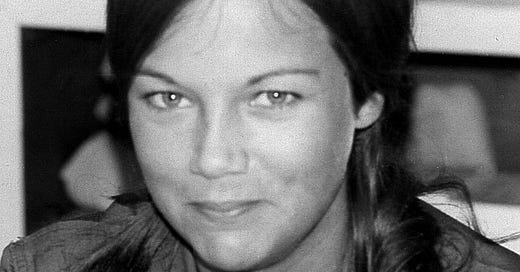



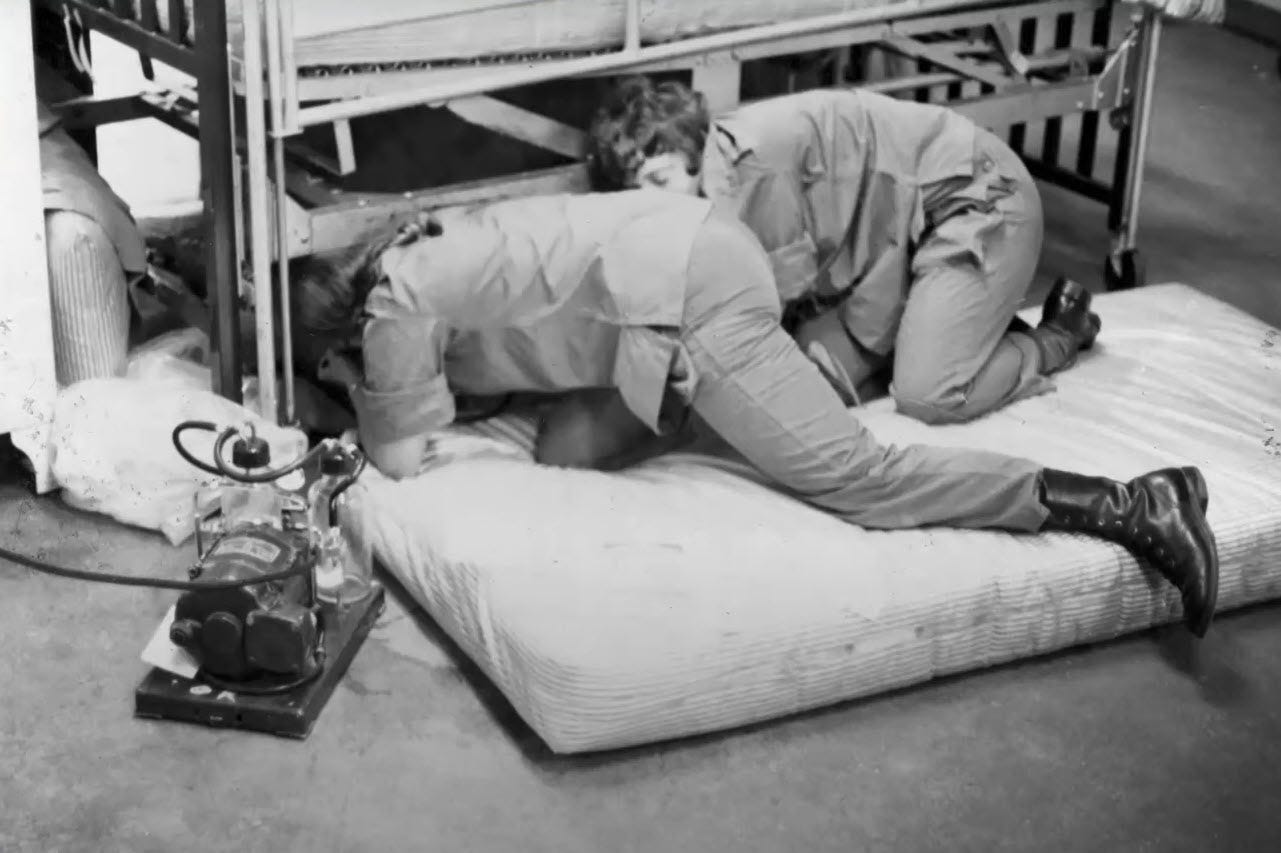


please pass along my warmest regards to Ginny .. from a former resident in the rvn from Nov 69 to Oct 70